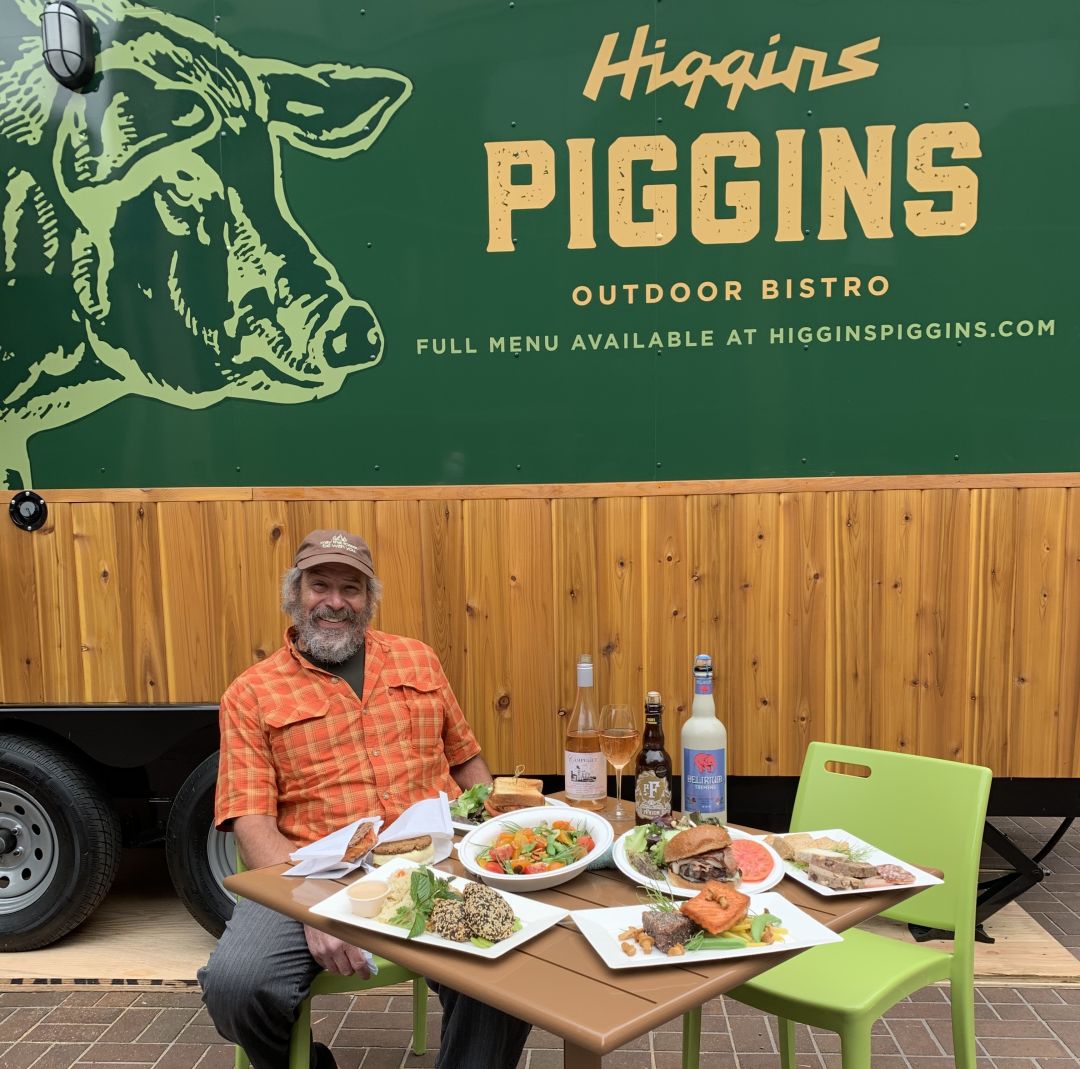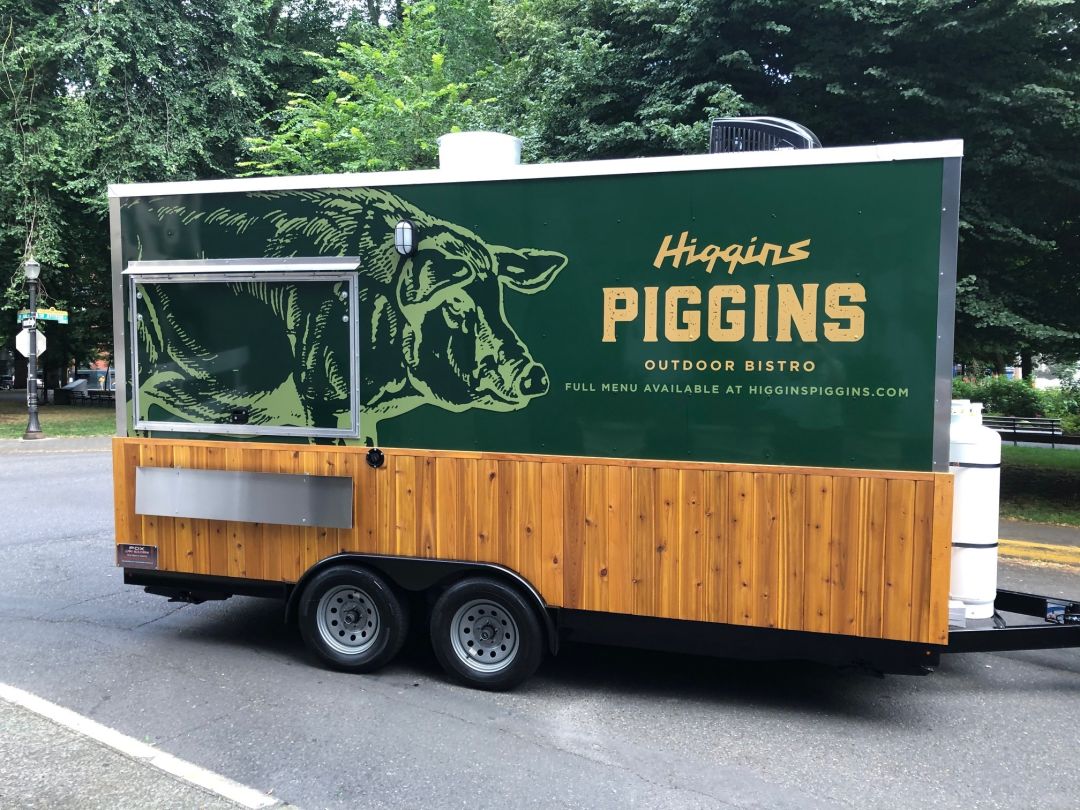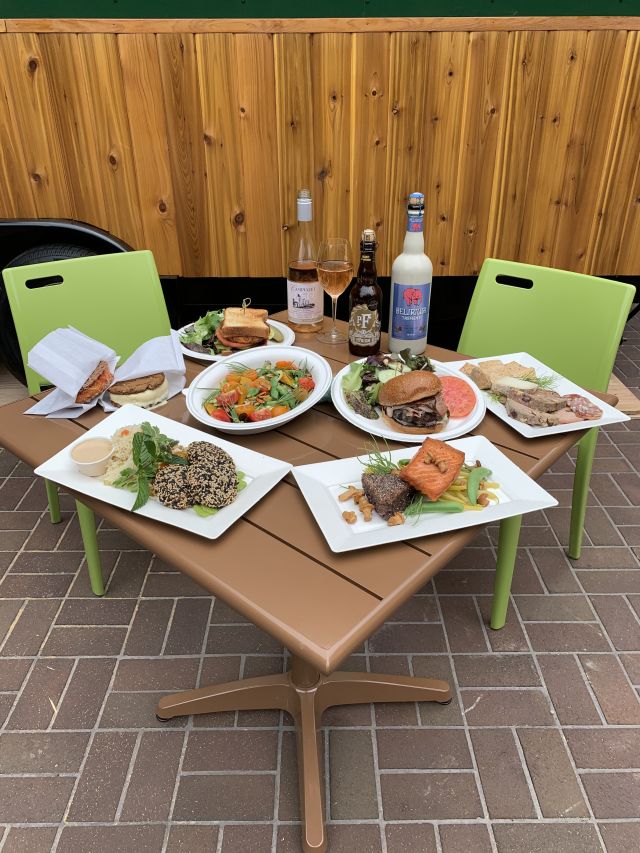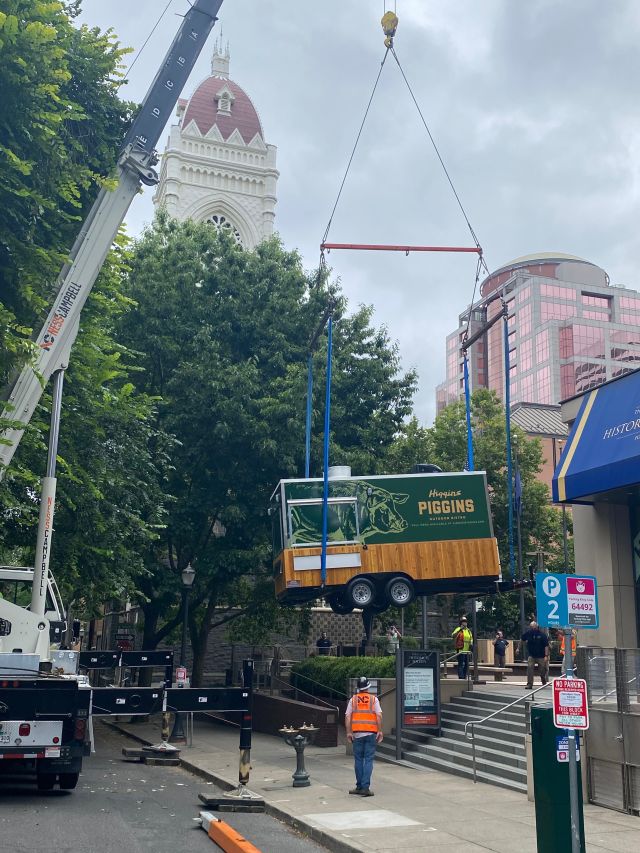Higgins to Open Piggins—And Star in a Pandemic-Era Documentary

Chef Greg Higgins sitting at his new open-air bistro, Piggins.
Image: Pat Strong
Meet Piggins, a junk-food-loving pig from a children’s book. He also happens to be the namesake of chef Greg Higgins’s new food cart and outdoor bistro opening Saturday, July 25.
The idea to open a place called Piggins has been churning in Higgins’s mind for more than a decade. He first made his mark on Oregon culinary history in 1994 when he opened Higgins Restaurant—a classic downtown spot that describes itself as Oregon’s original farm-to-table restaurant—and again in 2002, when he won a James Beard award for best chef in the Northwest. Around 2008, Higgins was gearing up to open a charcuterie and wood-fired pizza restaurant he planned to name Piggins, after a character from a children’s book his wife gave him as a gag gift.

Piggins isn't just a food cart—it's an outdoor bistro.
Image: Courtesy Higgins Restaurant
The pizzeria incarnation of Piggins never panned out; the recession put a permanent hold on Higgins’s plans. But when the coronavirus pandemic hit, Higgins realized that even if indoor dining was allowed at Higgins Restaurant, he could only pull in half of the restaurant’s usual revenue stream due to distancing guidelines. So he resurrected the name Piggins, this time for a new food cart and outdoor bistro.
“Pigs are tough, you know. They’re resilient,” Higgins jokes.

A spread of the offerings at Piggins.
Image: Pat Strong
Piggins opens for lunch and dinner service Saturday, July 25, at the Oregon Historical Society Plaza at SW Park Avenue and Madison Street. The Piggins cart is basically a full-size industrial kitchen on wheels, cooking to order the same food you’d find at Higgins Restaurant. On the current menu are plenty of Higgins favorites from three-cheese ravioli, hangar steak, and tameya to fava bean cakes. There are also a few exclusive items, like the Piggins Burger with applewood smoked pork, a smoked sockeye salmon sandwich, and a turkey schnitzel sandwich. The menu also includes a few cocktails (including a spicy margarita), draft beers, and wines by the bottle and glass. There’ll also be live music most nights.

Piggins lands at the patio in front of the Oregon Historical Society.
Image: Paul Moss
Meanwhile, culinary cinematographer Brian Kimmel of Optic Nerve Productions will be following Higgins around with a camera, filming a documentary on what he thinks will be looked back upon as a historical moment in the culinary scene as restaurants nationwide scramble to survive the pandemic. “With everything that was happening, Greg being who he is and his relationship to the entire food community here, it was important to document how things shape out,” says Kimmel.
In the film, titled When Pigs Fly, Kimmel documents Higgins’s survival strategy: first pivoting toward takeout, then developing plans to open Piggins. Kimmel also interviews some of Higgins’s decades-long food suppliers about the impact of the pandemic on their businesses. Two of those interviewees are Sheldon and Carol Marcovitz of Your Kitchen Garden, a farm in Canby that produces more than 300 different crops a year on just 10 acres of land, 11 months out of the year.
“All of my people I’ve spoken with have basically planted 50 percent less of what they usually plant,” says Higgins. “That’s just nuts. They have to figure out a way to make that business model continue on a dramatically reduced income. I haven’t heard of anybody literally pulling the plugs on their farms or anything, but if this doesn’t improve in some way in the near future, I’m sure that will start to happen. It’s obviously already starting to happen in the restaurant community.”
Kimmel expects to release When Pigs Fly in late summer or fall 2020. What that release will look like in the age of coronavirus is unknown, but Kimmel nevertheless hopes it’ll be important not just as a historical document, but to those who are living through this moment.
“I think Greg’s story is really representative of what a lot of chefs are going through,” Kimmel says. “It’d be great to get more of a dialogue going about what people’s experiences are and how they’re coping.”




